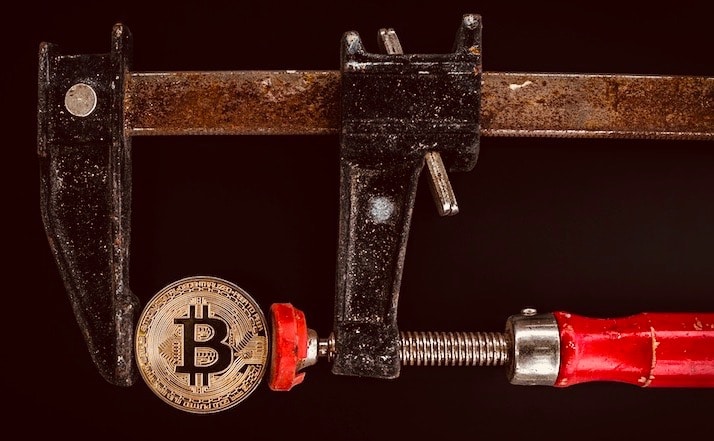Some may survive the inevitable bursting of this bubble and go on to do great things, like Amazon did. For now, it's just speculative mania
Some may survive the inevitable bursting of this bubble and go on to do great things, like Amazon did. For now, it's just speculative mania
Some may survive the inevitable bursting of this bubble and go on to do great things, like Amazon did. For now, it's just speculative mania
The words “This Time is Different” have been used for centuries to justify a new way of looking at the world. One of the most famous investors of all time, wrote that these four words are the most costly that one can utter.
This phrase is always used to justify a new way of looking at things, one that is seen as world-changing, and always accompanied by the expectation of a road to massive riches in a very short space of time.
Getting caught in the aftermath of the bursting of a bubble is by far the biggest cause of permanent loss to an investors’ capital. Avoiding these events is critical to one’s long-term financial well-being. For my first article under this column, we will tackle the biggest bubble of today, which is also one of the biggest bubbles in history: bitcoin and all related crypto-currencies.
Bubbles are a rare occurrence in financial markets, which is why the lessons are rarely learned. We start by going back in time to the year 2000, at the peak of the global technology bubble, which was centred primarily around the Nasdaq stock market in the United States.
In the years leading up to the top of the bubble, the mirage of the endless possibilities and profits from anything related to the internet gripped the investing world. New companies listing on Nasdaq routinely doubled, tripled, quadrupled or more on the first day of trading. Young ‘investors’, the only ones who really understood the potential of the internet, routinely quit their jobs and became day-traders of technology stocks. The profits that these investors made were always attributed to each trader’s skill, ignoring another famous saying in investing: Don’t Confuse Brains with a Bull Market.
Boring companies saw the mania and started adding “.com” to their name, instantly doubling or tripling their share price, due to the immense business potential that such a name change would bring.
A technology company was no longer valued based on sales or profits (the first was tiny, the second non-existent), but on eyeballs, as in how many users were looking at that company’s website. The fact that many of these companies spent $2 for every $1 of sales was only dissected after the bubble burst. Older investors with more wisdom stayed away from the bubble, chief amongst them Warren Buffett, who was widely derided as a dinosaur that did not understand the new world of technology investing, because “this time is different”.
It took two years for this bubble to fully burst, with losses of -80% in the Nasdaq index. The index took 16 years to overtake the year 2000 bubble highs. Many companies never recovered and lost -100% of their value, a permanent loss of capital for every investor that did not sell as they kept hoping for the shares to recover to their previous highs before exiting. Even Amazon, one of the survivors of the bursting of this bubble, lost -95% of its share price during this period.
From a fundamental view all the bullishness in 1999 was correct. The internet did change the world. Communication is faster than ever before, and new companies like Netflix have been created from the global internet infrastructure. These days even a toaster can connect to the internet, though it is not clear why one would want to.
Most bubbles in history are backed by fundamental change that does end up being revolutionary. The East India Company and Mississippi Company bubbles were based on the vast potential of new trade routes with Asia and North America. The Railway Mania for the ease of transporting large amounts of goods on land.
Like-wise the technology underlying all crypto-currencies, the blockchain, has the potential to disrupt many industries, especially the antiquated and error-prone international banking money transfer system.

Despite the potential in blockchain, crypto-currencies aren’t the same thing. We use bitcoin, though any other crypto-currency can be substituted here. When buying one bitcoin, you do not own anything more than computer code which (for now at least) the market is assigning a high value to. Owning a bitcoin does not give you any right to any future income streams from the technology, if there ever will be any.
The argument that bitcoin has scarcity value because it is limited to 21 million coins is correct if it will be viewed by the consensus as an alternative to money, which is a big stretch of the imagination, since it is not a good store of value and it is not a good medium of exchange. These are the two essential features of money. Some compare bitcoin to gold. Should bitcoins somehow actually become money, then the scarcity argument means that bitcoin value should increase only at the rate close to long term inflation, which is exactly what gold does over the long term.
Bitcoin is not a good medium for transferring money. As the blockchain gets longer and more transactions are recorded, it is taking more time, and becoming more expensive, to transfer.
The anonymity angle is also fading, as the US tax authorities have argued, no surprise here, that gains from crypto-currency trading are taxable, as it seems that many traders have not reported these gains on their tax returns.
All my examples above about the bubble excesses of technology stocks in year 2000 are being repeated today in crypto-world.
A perennial loss-making micro-cap company called Long Island Ice Tea changed its name last month to Long Blockchain Corp. The stock promptly tripled in value the next day. Initial Coin Offerings (ICO) are the new tech IPOs, and a reading of these offerings are as vague as many of the new issues in 1999 that went bankrupt soon after. Almost every week I am getting questions from older and wiser investors on bitcoin, and invariably they point to a nephew or niece who has made a tremendous amount of money ‘trading’ crypto-currencies.
The speculative frenzy makes it clear that we are in the midst of one of the biggest bubbles of all time. Some of these ‘coins’ may well survive the inevitable bursting, and end up doing great things, like Amazon.com did, but remember that even Amazon lost almost all its value during the bust.
After all this we’re left with what lies at the heart of all speculative manias, that the next person will pay more than what you paid, pushing the price up, and fear of missing out will perpetuate this cycle. If this is all that’s holding bitcoin up, watch out when sentiment changes.
By LEONARDO DRAGO
Co-founder of AL Wealth Partners, an independent Singapore-based company providing investment and fund management services to endowments and family offices, and wealth-advisory services to accredited individual investors.
YOU MAY ALSO LIKE

CHEAPEST COUNTRY IN THE REGION
May 2014 – For now, China appears to offer a similar opportunity to what Indonesia offered investors in the aftermath of the 1998 financial crisis

(NO LONGER) THE CHEAPEST COUNTRY IN THE REGION
…Year after year of losses while the rest of the world’s equities marched higher had caused many investors to throw in the towel

Surviving bear markets
Investors need a plan that has been proven historically to work and the discipline to follow it through
YOU MAY ALSO LIKE

the cheapest country in the region
May 2014 – For now, China appears to offer a similar opportunity to what Indonesia offered investors in the aftermath of the 1998 financial crisis

(NO LONGER) THE CHEAPEST COUNTRY IN THE REGION
…Year after year of losses while the rest of the world’s equities marched higher had caused many investors to throw in the towel.
YOU MAY ALSO LIKE

the cheapest country in the region
May 2014 – For now, China appears to offer a similar opportunity to what Indonesia offered investors in the aftermath of the 1998 financial crisis

(NO LONGER) THE CHEAPEST COUNTRY IN THE REGION
…Year after year of losses while the rest of the world’s equities marched higher had caused many investors to throw in the towel.
